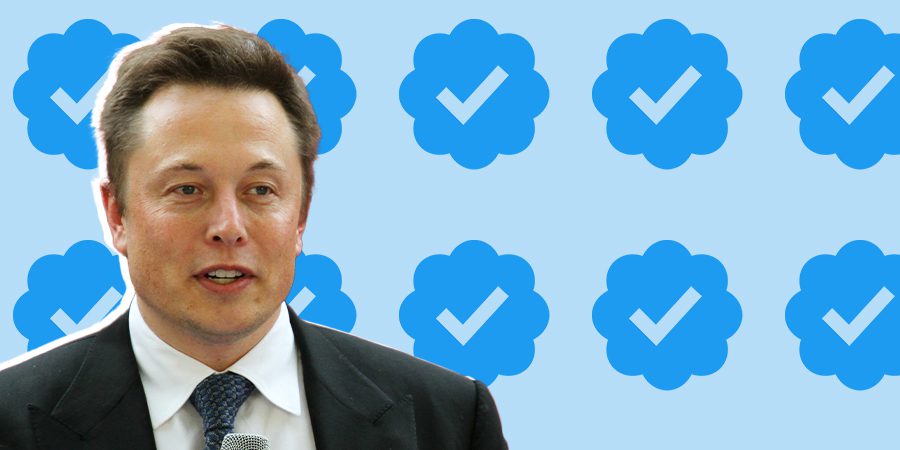In this article, we’ll look at the reasons behind the recent uproar surrounding Twitter’s verification system and how top Tesla investor Ross Gerber believes this could mark the beginning of the end for the social media giant.
Key Takeaways:
- Twitter’s turmoil over verification may signal the company’s decline, according to top Tesla and Twitter investor Ross Gerber.
- Gerber accuses Musk of hypocrisy for granting blue checks to certain users after criticizing the existing system as elitist.
- The controversy has led to further confusion, with blue checks returned to accounts of deceased users, causing concern among investors.
Gerber’s Take on Twitter’s Verification Controversy
Ross Gerber, a top Tesla and Twitter investor, and the CEO of Gerber Kawasaki Wealth and Investment Management, has expressed concerns over the recent turmoil at Twitter.
He believes the controversy could signal the decline of the company, as it struggles to manage the fallout from its verification system.
Gerber’s concerns stem from Elon Musk’s recent decision to start giving out free blue checkmarks to some users.
This move exposed Twitter CEO Jack Dorsey’s alleged hypocrisy, considering his plans to replace the existing verification system with a subscription service.
Twitter Blue, the proposed subscription service, comes with a price tag of $8 a month.
However, many celebrities and news organizations have refused to pay, leading to an ongoing controversy surrounding the verification process.
Gerber and other investors are paying close attention to how Twitter handles the issue at hand. If Twitter doesn’t effectively deal with the criticism it’s receiving, it may put its future at risk.
Musk’s Accusations of Hypocrisy
Elon Musk initially announced his plan to abolish what he called the “lords and peasants system” of Twitter verification. This system, he argued, favored famous individuals over others.
Musk’s intention to create a more egalitarian verification process resonated with many users. However, his actions soon led to accusations of hypocrisy.
Critics accused Musk of establishing a new system of social stratification when he started granting blue checkmarks to certain users, particularly those with a million or more followers.
Gerber, among others, has been vocal about the perceived hypocrisy. He said, “Elon went out of his way to insult people with blue checks as being entitled famous people, and implied that the system he was creating was this egalitarian free world where verification was just based off being you — and famous people wouldn’t get this free privilege.”
By reversing his stance and granting blue checks to users with large followings, Musk appeared to undermine his previous statements. This has led to further scrutiny of both Musk and Twitter as a whole.
Twitter’s Confusion Deepens
The controversy over the blue-check on Twitter has revealed a bigger problem. Gerber believes that Twitter’s inability to handle the situation where blue-checks are given back to accounts of deceased users shows their lack of clear goals.
This seemingly inexplicable decision has added to the ongoing chaos surrounding Twitter’s verification process.
Gerber has expressed disapproval of Musk’s management on Twitter, stating that Musk’s attention to the social media platform has diverted his focus from leading Tesla.
Tesla’s recent earnings report revealed that Musk is now looking to aggressively pursue market share, potentially at the expense of short-term profits.
The controversy surrounding Twitter’s verification system has had a ripple effect, with investors and users alike expressing concerns over the company’s future.
Conclusion: The Road Ahead for Twitter
Twitter’s handling of the blue-check controversy has led to widespread criticism from both investors and users.
The company’s attempt to create a more egalitarian verification system has been mired in accusations of hypocrisy and confusion.
As top investor Ross Gerber expresses doubts over the future of the platform, the pressure is on for Twitter to address these issues and regain the trust of its user base.
The social media giant will need to find a way to resolve the controversy surrounding its verification system, and prove to investors and users alike that it can effectively navigate these challenges while maintaining its core values of openness and inclusivity.
Moving forward, Twitter must devise a transparent and fair verification process that addresses the concerns of both users and investors.
It will be crucial for the company to communicate its plans effectively, demonstrating a commitment to resolving the issues that have emerged from the blue-check controversy.
In addition to reevaluating its verification system, Twitter may also need to assess its leadership and decision-making processes.
This may involve scrutinizing the role of high-profile individuals like Elon Musk, who have played a significant part in the current turmoil.
As the platform seeks to rebuild trust, it must prioritize transparency and clear communication.
This could involve sharing updates on policy changes, engaging in open dialogue with users, and providing timely responses to concerns.
The controversy surrounding Twitter’s verification system serves as a reminder of the delicate balance social media platforms must maintain in order to satisfy both users and investors.
By learning from this experience and taking decisive action, Twitter has the opportunity to strengthen its position in the social media landscape and reassure its stakeholders of its commitment to fairness and inclusivity.
 Sections of this topic
Sections of this topic
















